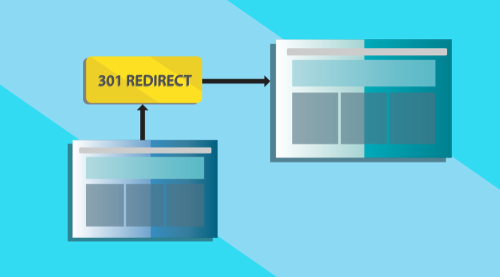Do Redirects Hinder Your Website?
Decisions about website optimization often feel like a juggling act. Among these, the question of whether to implement a redirect strategy—and if so, which type of redirect to use—frequently arises. For digital marketing agencies, it’s about preserving SEO equity and ensuring an optimal user experience.
If you’re looking for technical SEO services, Now Media Group is here for you. With a suite of digital marketing services, we can transform your website and improve your rankings. Contact our team today at (858) 333-8950.
What Are Redirects and Why Do They Matter?
Redirects are a way of sending both users and search engines from one URL to another. While seemingly straightforward, redirects can significantly impact SEO performance, user experience, and website functionality.
Common Types of Redirects
- 301 Redirects (Permanent): These indicate that a page has permanently moved to a new URL. Search engines transfer most of the original page’s SEO value to the new one, making it an ideal choice for long-term changes.
- 302 Redirects (Temporary): These signal a temporary move. Search engines typically don’t transfer SEO value, making them suitable for short-term changes like seasonal promotions.
- Meta Refresh Redirects: Often implemented at the page level, these offer less SEO value and are generally considered outdated.
- JavaScript Redirects: These rely on scripts to redirect users. While functional, they can lead to delays in crawling and indexing by search engines.
SEO Implications of Redirects
Link Equity and Page Authority
When implementing redirects, a critical concern is how much link equity (or “link juice”) transfers from the original page to the destination page. A 301 redirect preserves the majority of this equity, while a 302 redirect does not.
- Pro Tip: Always opt for a 301 redirect for permanent URL changes to maximize link equity retention.
Crawl Budget
Search engines allocate a finite number of resources to crawl your site. Excessive or improperly implemented redirects can consume your crawl budget, delaying the indexing of important pages.
- What We Recommend: Regularly audit your redirects to ensure they’re necessary and efficient.
User Signals
Redirects can impact user signals like bounce rate and time on page. A poorly executed redirect can frustrate users, leading to higher bounce rates and reduced conversions.
Redirects and User Experience
Speed and Performance
Redirects add latency. For users on mobile devices or slow connections, even a minor delay can lead to frustration and abandonment.
- Solution: Minimize redirect chains by consolidating multiple redirects into a single step.
Context and Messaging
Redirects should feel intuitive to users. For instance, if a product page is discontinued, redirecting users to a related category page rather than the homepage can improve engagement.
- Example: A fashion retailer redirected out-of-stock product pages to “Similar Styles” collections, increasing conversions by 15%.
When to Redirect and When Not To
When to Redirect
- Website Redesign: Redirect old URLs to the new structure to preserve rankings.
- Content Consolidation: Merge similar pages into a single, authoritative resource.
- Domain Change: Redirect all URLs from the old domain to the new one.
- Page Deletion: Use redirects to guide users to related content instead of showing a 404 error.
When Not to Redirect
- Temporary Updates: Use 302 redirects sparingly for short-term changes.
- Internal Links: Fix outdated links instead of relying on redirects.
- Broken Redirect Chains: Audit and eliminate unnecessary redirects to improve site performance.
Tools for Redirect Management
Managing redirects effectively requires the right tools. Here are our top recommendations:
- Google Search Console: Monitor crawl errors and validate redirects.
- Screaming Frog: Identify redirect chains and loops.
- Ahrefs or SEMrush: Track backlink health and ensure link equity flows correctly.
- Yoast SEO: For WordPress users, Yoast simplifies redirect implementation.
Let’s Redirect Your Strategy to Success
Contact Now Media Group today at (858) 333-8950 to schedule a free consultation and discover how we can redirect your digital strategy towards measurable success. Don’t leave your traffic and rankings to chance—let’s build a roadmap to your online goals, one URL at a time.
